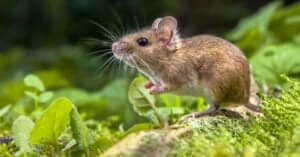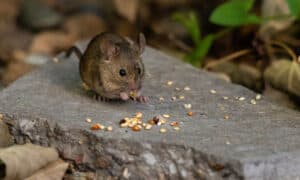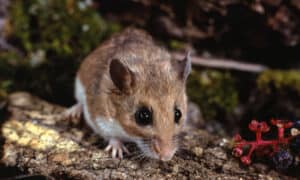Guinea pigs differ from many other household pets because they feature fast digestive systems and a constant need for food. You might wonder: how long can guinea pigs go without eating before it becomes dangerous?
It’s dangerous for guinea pigs to go just 6-8 hours without eating. They can develop gastrointestinal (GI) stasis, which can kill them very quickly without treatment. Call your veterinarian as soon as you notice changes in your guinea pig’s appetite.
In this article, we’ll discuss how long guinea pigs can go without food, the signs that they’re in GI stasis, and what to do if your guinea pig isn’t eating.
How Long Can Guinea Pigs Go Without Eating?
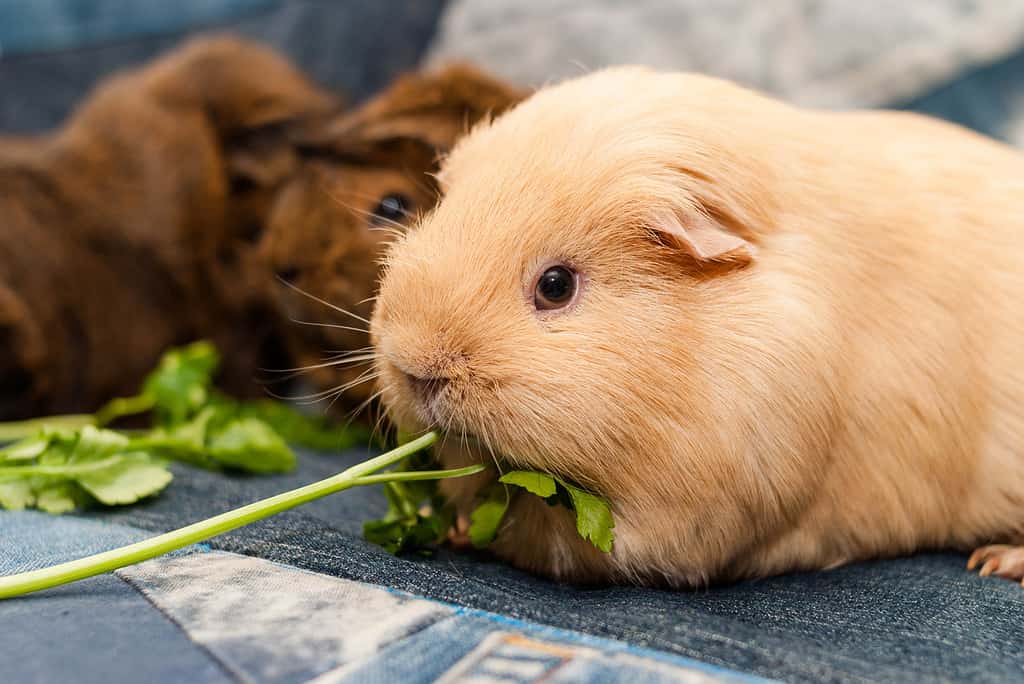
When your guinea pig stops eating, you should always treat the situation as an emergency since just 6-8 hours without food can cause deadly GI stasis.
©Sofiia Petrova/iStock via Getty Images
When a guinea pig stops eating, you must consider it as an emergency. Even just 6-8 hours without food is dangerous for a guinea pig, as this can cause into gastrointestinal stasis (also known as GI stasis), a life-threatening condition.
The longer your guinea pig goes without food, the more at risk they will be. This is why they need constant and unlimited access to fresh hay. In addition, guinea pigs should get around a cup of mixed vegetables daily and ⅛ cup of quality, timothy-based pellets. They also need consistent access to water.
What is GI Stasis in Guinea Pigs?
Gastrointestinal stasis happens when a guinea pig’s digestive system stops functioning properly. It may slow down or stop completely. Guinea pigs have very fast digestive systems and when they are healthy, food is constantly moving through their bodies.
When a guinea pig has GI stasis, it may eat less than usual or refuse to eat entirely. They’ll poop less or not at all. They may hide more than usual and become lethargic or weak.
Causes of stasis include poor diet, dental issues, and stress.
Are There Alternatives to Hay for Guinea Pigs?
Your guinea pigs should always have access to safe hay such as timothy or orchard grass. Orchard grass is a great replacement for timothy hay if you’re allergic.
Some people dislike the smell of hay and attempt to use compressed hay blocks or similar products. While these are great for enrichment in addition to loose hay, they aren’t a replacement. Your guinea pig will not be able to eat enough if this is all that they’re given.
Timothy-based pellets are also not a replacement for hay and too many pellets can cause obesity.
Technically, guinea pigs can eat grass, but it’s impractical to grow enough to sustain them! This is why most people feed them dried hay instead.
If you do feed your guinea pigs grass, make sure it’s free of pesticides, insects, and animal urine.
There’s no real replacement for an unlimited supply of hay for guinea pigs, and running out for even a few hours can be detrimental to their health. If you’re unable to afford hay for your piggies, you might need to make the difficult decision to rehome them.
Do Guinea Pigs Need Vegetables Every Day?
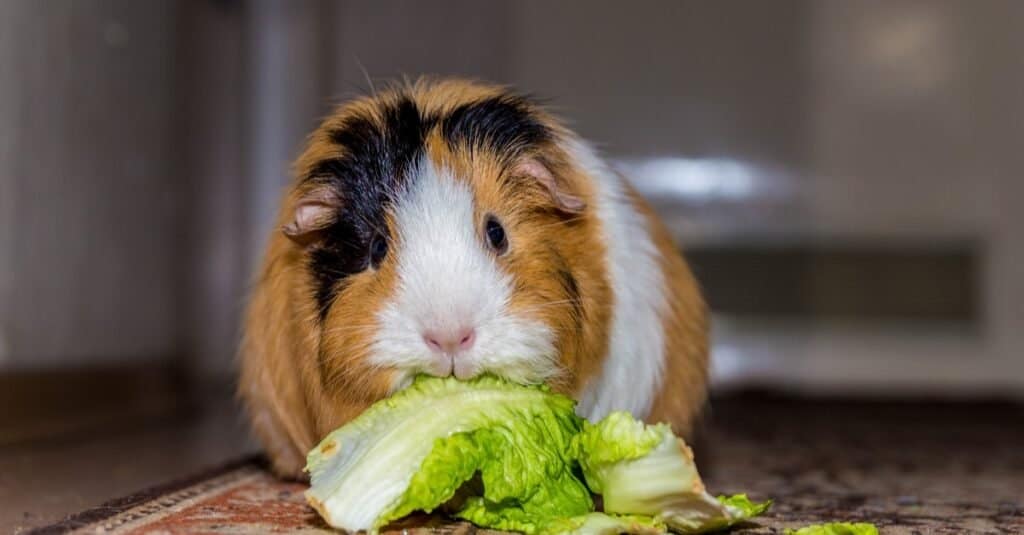
Feed your guinea pigs a variety of vegetables consisting of primarily dark, leafy greens.
©Tomasz Stepien/Shutterstock.com
Ideally, you should feed each of your guinea pigs a cup of fresh vegetables daily. They should eat primarily dark leafy greens with plenty of vitamin C and limited amounts of calcium and sugar.
If you need to skip a couple of days, this isn’t likely to hurt your guinea pigs. However, a diet without vegetables isn’t healthy in the long term and can cause scurvy.
Do Guinea Pigs Need Pellets?
Pellets aren’t technically necessary, and there is some controversy about them in the guinea pig community. However, most people feed a small number of daily pellets to ensure that their piggies get the right balance of nutrients.
It can be difficult to give them everything they need with veggies and hay alone, especially if you aren’t an expert in guinea pig nutrition.
Pellets also play an important role in keeping sick and senior guinea pigs at a good weight.
That said, your guinea pigs are unlikely to be harmed by missing a few days of pellets so long as their other dietary needs are met. You might want to feed extra veggies to make up for the nutrients they’d typically get from their pellets, and you’ll especially want to ensure that they’re getting enough vitamin C until you can buy another bag.
What to do if Your Guinea Pig Won’t Eat
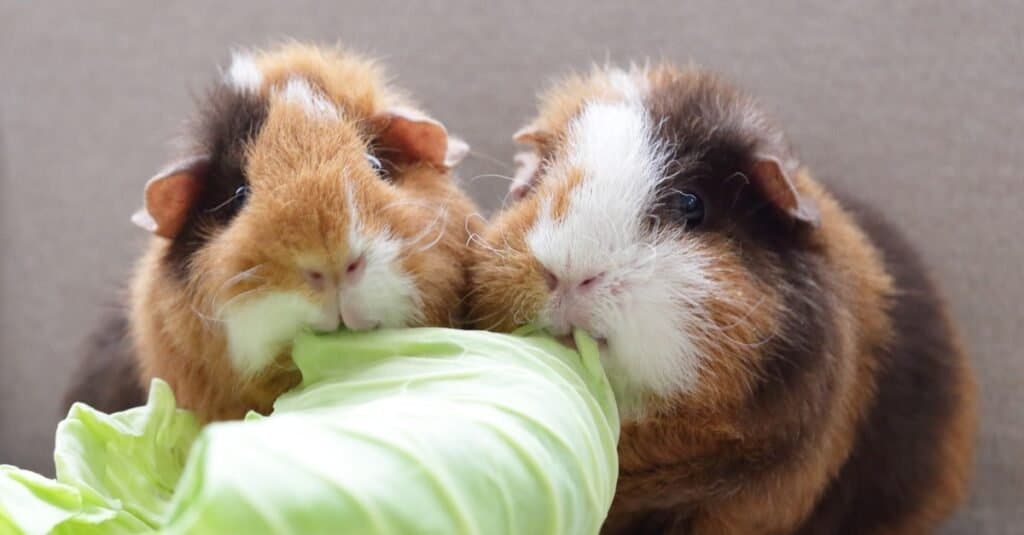
You should contact a vet is your guinea pig refuses to eat, and if possible, book a same-day appointment to get them prompt care.
©yurilily/Shutterstock.com
In cats and dogs, we typically begin to worry if they haven’t eaten in 24 hours or more. With guinea pigs, waiting that long can mean treating them too late.
It’s important to have an exotic vet nearby with experience treating guinea pigs. Call as soon as you notice your guinea pig’s appetite has changed, even if they’re just eating less or only eating certain foods.
It’s not always possible to get a same-day appointment, but it’s ideal. Your vet can also give you advice on how to care for your guinea pig in the meantime, such as feeding a recovery food like Critical Care or Emeraid Herbivore.
The photo featured at the top of this post is © FotoHelin/Shutterstock.com
Thank you for reading! Have some feedback for us? Contact the AZ Animals editorial team.




